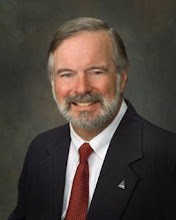Monday, 25 October, saw the passing of two good friends of mine, one in Campton, and one in Fellbach.
RUSSELL PALMER, Campton, New Hampshire, U.S.A.
In Campton, Mr. Russell Palmer died in his home. He was a farmer and retired road construction superintendent. Russ lived on the Daniel Webster Highway, at the DaWeHi Farm. When I-93 was extended north of Plymouth in the 1960s, that farm was cut off from its western acreage, as the highway pretty well bisected his family's property. So, in 1971-'72 Russell subdivided part of his western land, and built a pair of "spec houses" on the western side of the highway. One was a red chalet, which the new young (29) plant manager at Beebe River, Duncan McDougall, bought from him in February, 1973. Russell and I became fast friends. We did not see a lot of each other, but made it a practice to drop by once or twice a year. Usually it was I stopping at the farmhouse on my way to Plymouth. But occasionally Russ would drop by the chalet, or later our current Campton house on Route 175. I enjoyed these coffee chats with Russ. Russ was an intelligent and incisive observer of the world. He stayed active all his life. When last we spoke, in the summer of 2009, Russ was out mowing around his fire pond as I rode by on my Ducati. Seeing him there, I had to turn around and come back a bit to catch his eye. But when he saw me, Russ rode his little lawn tractor up to the roadside, and I removed my helmet, so we could exchange a few words. Shirl says that Russ' son Christopher called yesterday to say that Russell was standing in the house, and simply died within five seconds, at 98 years of age. God rest his soul.
 |
| Frau Hilde Schmid, in the gray suit, next to grandsons, Max and Ferdi |
FRAU HILDE SCHMID, Fellbach, Baden-
Württemberg, Germany
In Fellbach, Germany, Frau Hilde Schmid of the shoe-care and plastic mold-making company
nico-Schmid, GMBH, died of Parkinson's disease, from which she had been ill for several years. I met Frau Schmid (I never called her Hilde) at the Norbert Schmid Company, GMBH, in Fellbach in 1988. I was then president of Rochester Shoe Tree Company of Plymouth and Ashland, New Hampshire, and met Hilde's son Dietmar at the National Shoe Fair, held at the Javits Center in Manhattan, New York. Dietmar was a young manager with his father's company, and Hilde was then acting COO, as Norbert was pretty much retired by then. At the NY shoe show, Dietmar expressed interest in importing American red cedar shoe trees into Europe, where their deodorizing and leather-drying qualities would be innovative. In the process of developing a business relationship, I traveled to Fellbach for my first visit, and found myself sitting across a conference table from Frau Schmid. She spoke in German, and I in English, with Dietmar acting as interpreter. It proved a successful meeting, and the business relationship developed that day has continued for the ensuing 21 years. I credit the quality of the entire Schmid family for that, but especially the wisdom and integrity of Frau Hilde Schmid. Frau Schmid was delighted in 1989, when I returned to stop in with my son Jamie, who was making his first trip to Europe, on our way to an IBM-sponsored conference on the "Factory of the Future" in Barcelona. And some years later, though in the early days of her Parkinson's ordeal, Frau Schmid had dinner with us on a visit that I made to Fellbach on personal business. I asked Dietmar if I might see her this past September, when I arrived in Fellbach to collect Klaus, but as she was hospitalized at the time, Dietmar felt it best that I not do so. At the time, Frau Schmid was still living at home, with 24-hour care, except when her troubles demanded hospitalization. In the end, she had only two days in the hospital.
My dear friends Russell and Hilde, may God grant you peace in His kingdom. The Twenty-fifth of October, 2010, appears to have been a good day to die (as one day we all shall do), for God was taking very good people home that day.




































